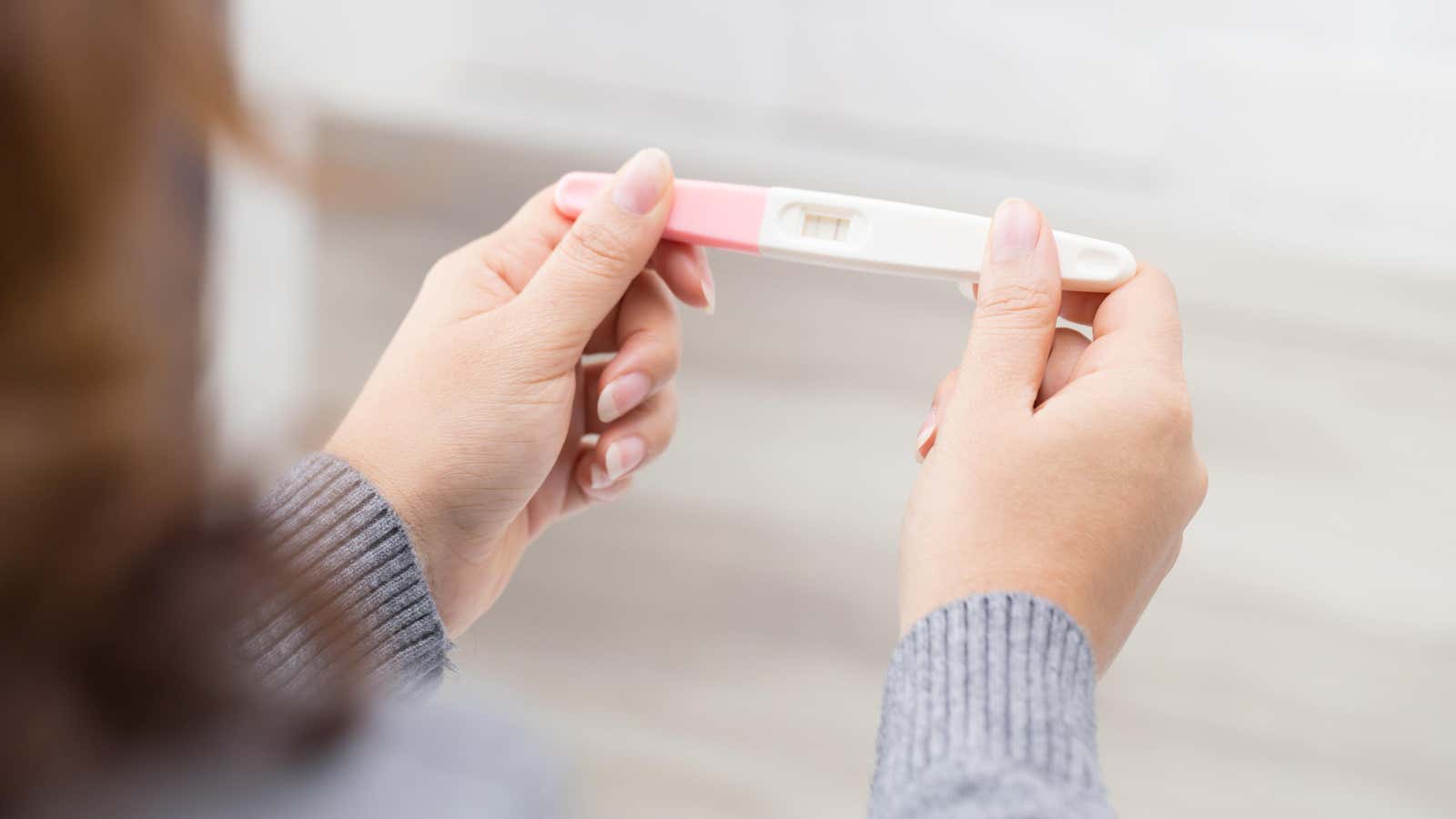Does Sexual Position Matter When You’re Trying to Get Pregnant?

If you and your partner are ready to start a family, you might be wondering what you can do to increase your chances of getting pregnant sooner rather than later. From self-care to the timing (and position) of sex, here’s what you need to know when you start trying to conceive.
Are certain sex positions the best for conceiving?
The short answer is no.
“There is no scientific evidence to support the idea that one sex position increases the chances of conception over another,” says Dr. Jill McDevitt, CalExotics resident sexologist and author of Sex Positions for Every Body. “Pregnancy is possible in any sex position, and there is no empirical evidence that the position changes the likelihood in any way.”
She notes that one study found that ejaculation during the missionary and rear entry/doggy positions brought sperm closer to the cervix, which could theoretically promote conception, but McDevitt notes that the entire study “was only one pair, and sperm were close to the cervix does not necessarily mean an increased chance of conception.”
Fertility physicians and co-founders of Dreams Fertility , Dr. Joel Batzofin and Dr. Louis Murrain , agree.
“There is no sexual position that has been proven to increase the chance of pregnancy,” Murrain says.
Batzofin adds: “There is no preferred position for intercourse. It is important that ejaculation occurs high in the vagina so that the cervix is flooded with the highest possible concentration of semen. After ejaculation, sperm must still bypass the cervix and reach the upper genital tract, where fertilization occurs. Thus, the position during intercourse is relatively unimportant.”
While Batzofin says that a position that helps ejaculate high in the vagina is “helpful,” he adds, “Most sex position myths are just myths that just add to the anxiety without adding anything.”
So, if doggy style doesn’t actually help increase your chances of having a baby, what can?
Take care of your health
Make sure both you and your partner lead a healthy lifestyle.
“You have to take care of yourself first,” Murrain says. “Do your best to optimize your health – eat a healthy diet, exercise regularly. Work with your doctor to maintain good control of any chronic disease you may have.”
Also keep in mind that this may take longer than you expect.
“It can be stressful and frustrating when you want to have a baby, and it doesn’t happen right away,” Murrain says. “Although it seems that conception should be natural and direct, it is actually a very complex process and there are many things that can interrupt this process and make it difficult to achieve pregnancy.”
If you’ve been trying to conceive for more than six months and haven’t been able to conceive, Murrain suggests contacting your trusted doctor or fertility specialist.
Have sex at the most fertile time of the month
“The main success factor in sex is that it occurs regularly during the fertile period,” Batzofin says. “For women with regular periods, this window is 10 to 20 days (day 1 is the first day of bleeding). Ovulation must occur within this fertile window.”
As for frequent sex, Batzofin recommends once every two days. “However, couples dealing with fertility issues are under a lot of stress right from the start. Forcing them into strange positional changes and frequency requirements can add to their stress.” Which, in turn, does not increase your ability to conceive; in fact, stress will lower your chances.
So, if in doubt, have sex during this fertile period when it seems right for both you and your partner.